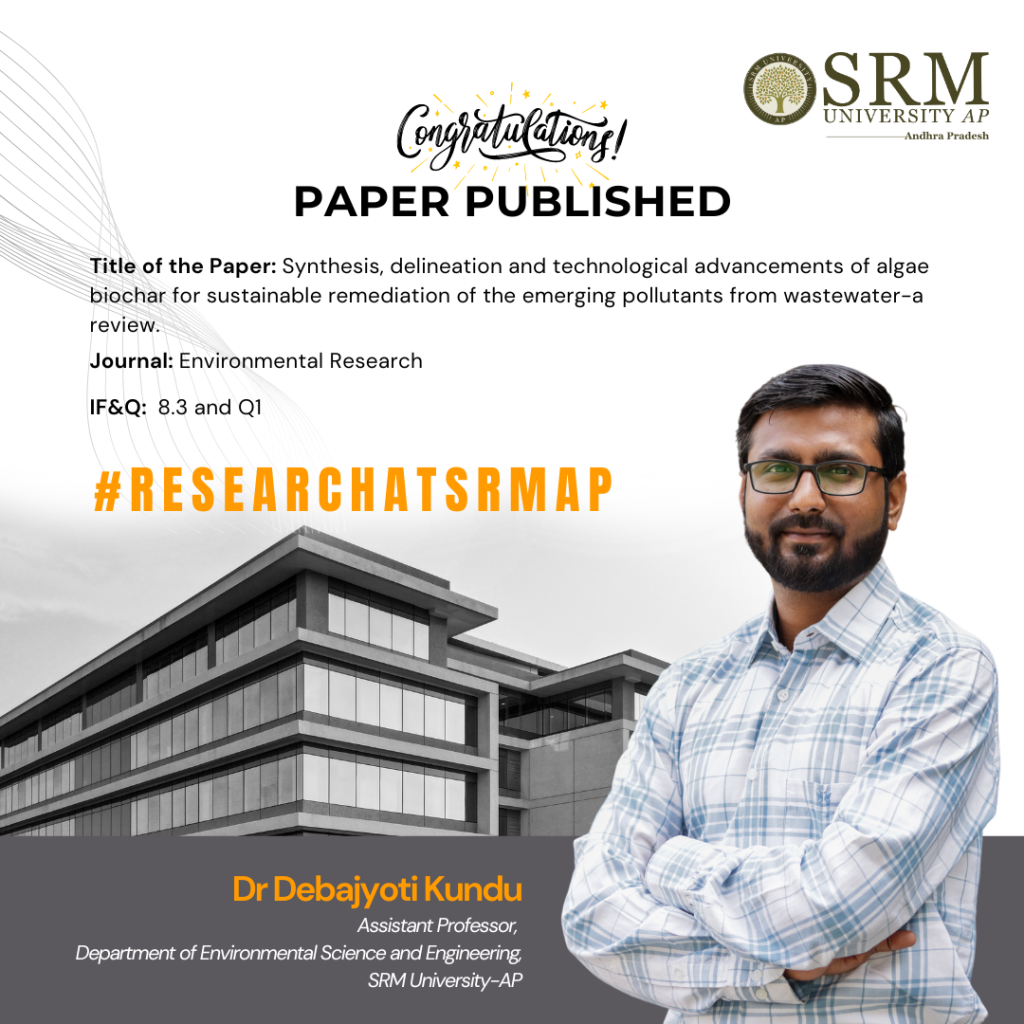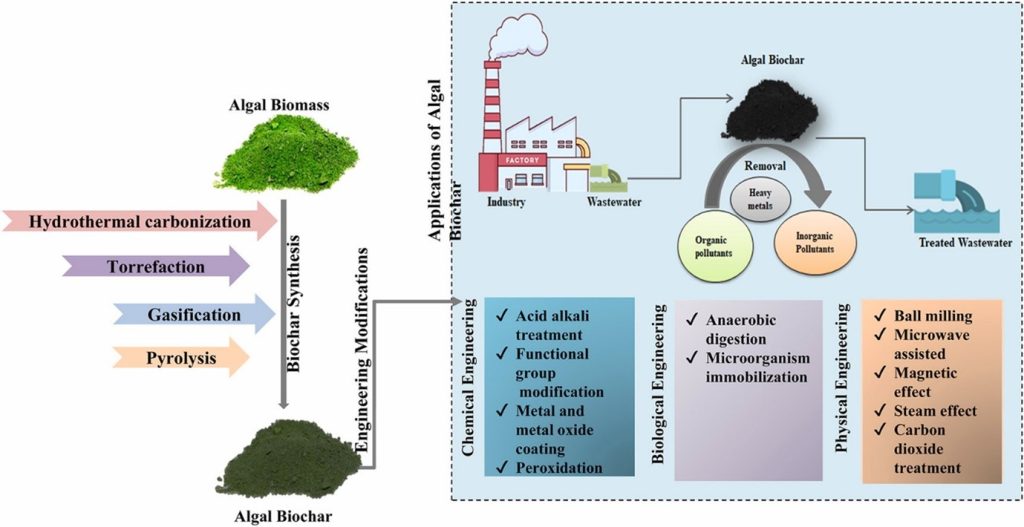
Dr Debajyoti Kundu, Assistant Professor in the Department of Environmental Science and Engineering, has published a research paper titled “Synthesis, delineation and technological advancements of algae biochar for sustainable remediation of the emerging pollutants from wastewater – A Review” in the esteemed Q1 journal “Environmental Research”, which has an impact factor of 8.3.
Dr Debajyoti’s research focuses on using algae biochar, which is particularly effective at cleaning polluted water. The study reviews how this biochar is made and improved and how it can effectively remove harmful substances from wastewater. This process is sustainable and environmentally friendly, offering a promising solution to water pollution.
Abstract
The study examines the synthesis, technological advancements, and applications of algae biochar for the sustainable remediation of emerging pollutants from wastewater. It highlights the unique properties of algae biochar, including its high surface area, pore volume, and adsorption capacity, which make it an effective medium for removing inorganic and organic contaminants from wastewater. The paper discusses various methods for producing algae biochar, such as pyrolysis, gasification, and torrefaction, and explores chemical and structural modifications to enhance its pollutant removal efficiency.
Practical Implementation /Social Implications of the Research
The practical implementation of this research involves using algae-derived biochar in wastewater treatment plants to remove harmful pollutants. This can lead to cleaner water, reduced environmental pollution, and improved public health. The process is also sustainable and cost-effective, contributing to environmental conservation and resource efficiency.

Collaborations
This research is a collaborative effort among various experts from institutions such as the University of Calcutta, Babasaheb Bhimrao Ambedkar University, Koneru Lakshmaiah Education Foundation, Graphic Era Deemed to be University, Indian Institute of Technology Kharagpur, Ranchi University, King Abdulaziz University, Incheon National University, Korea Aerospace University, and B.S. Abdur Rahman Crescent Institute of Science and Technology.
Future Research Plans
Dr Debajyoti’s future research projects include exploring advanced modification techniques for algae biochar to further enhance its pollutant removal capabilities, investigating its application in different types of wastewater, and developing large-scale production methods. Additionally, there is an interest in studying the long-term environmental impacts and economic viability of using algae biochar in wastewater treatment.

